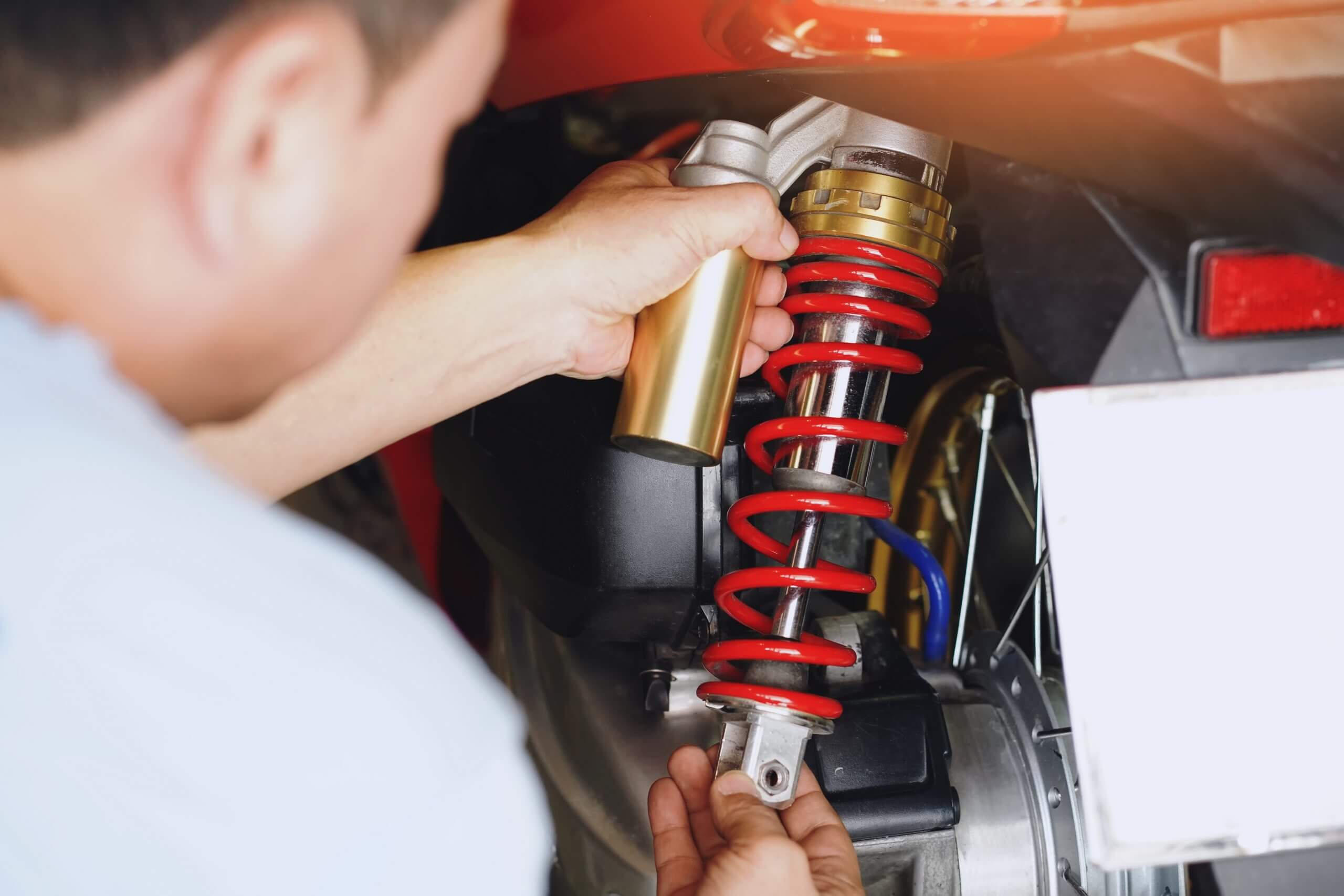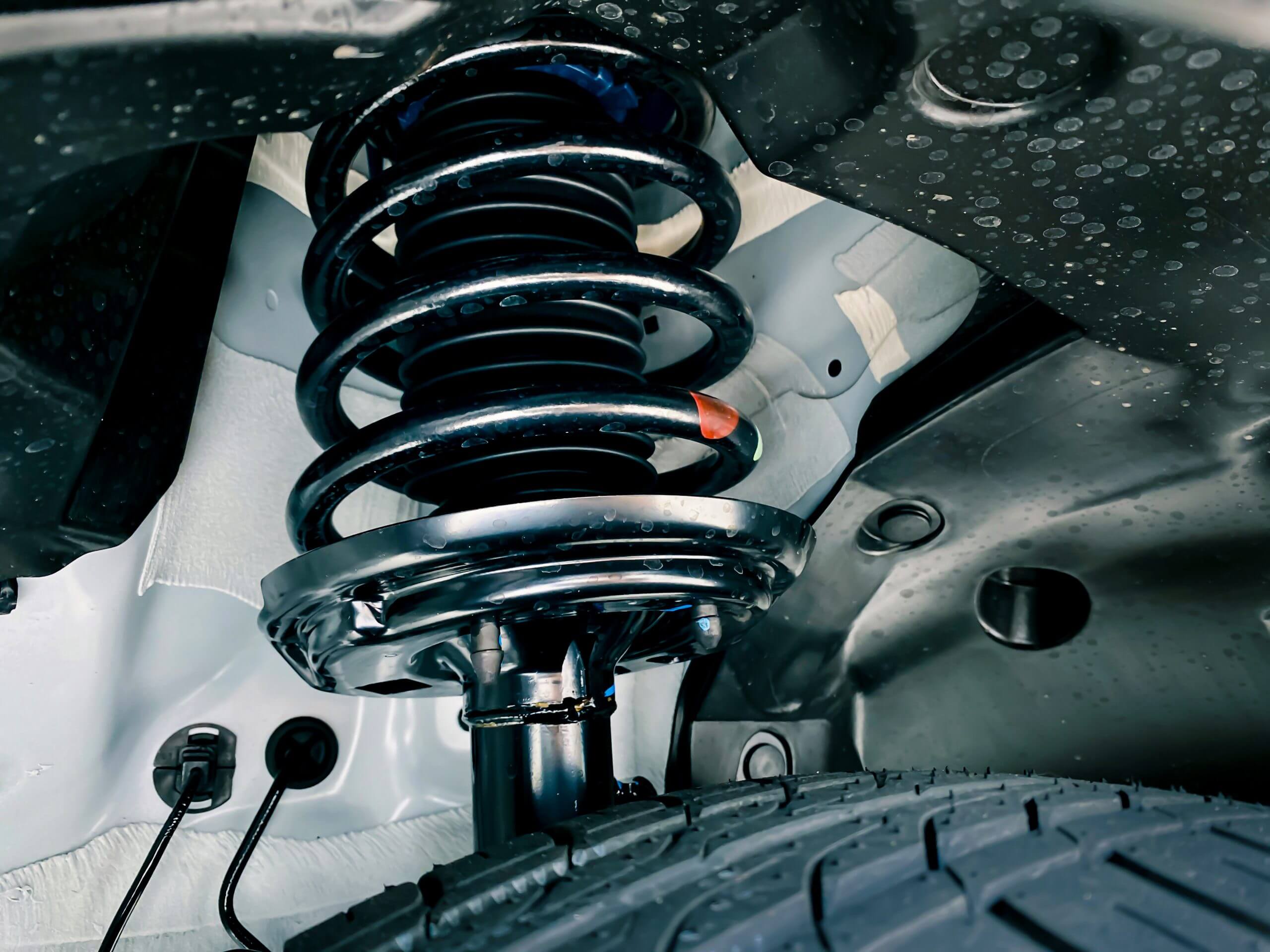The Average Cost to Replace Shock Absorbers Is $741–$826. The Average Shock Absorber Replacement Labor Cost Is $197 to $248, Which You’ll Save If You DIY
This price range is based on national averages for all vehicles and does not factor in taxes, fees, or your particular make and model. Related repairs or maintenance may also be needed such as replacing coil springs, struts, the top mount, or sway bar links. For a more accurate estimate based on your make, model, and location, use the RepairPal Fair Price Estimator.
Cost at the Mechanic: $745-$826
Parts: $548-$578
Labor: $197-$248
Parts make up a major portion of the cost of replacing a shock absorber. Although all shock absorbers serve the same purpose, different vehicle models and suspension systems will require different types, so the price of yours may be below or above the average range. The cost of labor also varies based on the shop’s rate and fees, as well as the vehicle’s ease of access.
Cost to DIY: $548-578
Difficulty Level: Intermediate
Parts Needed:
- Jack stands
- Car jack
- Pry bar or crowbar
- Socket wrenches
- Replacement shock absorbers

The only expense with a DIY shock absorber replacement is the cost of the new part. If you know the shock absorber model that fits your vehicle’s front or rear wheels, you’ll definitely save money if you buy it online and install it yourself. Having a little experience as a home mechanic will help, but overall it’s not too difficult to replace your shock absorbers. More and more car parts are getting affordable to buy online.
Keep in mind: Shock absorbers are not the same thing as struts. Many cars have shocks on their rear wheels and struts on the front, so be sure to check your owner’s manual for what you need.
What Is a Shock Absorber Replacement?

A shock absorber replacement will be similar to replacing struts and other suspension parts for a wheel. First, you lift the vehicle, carefully uninstall the old shocks, insert the new ones while following any related directions on their packaging, and lower the vehicle back down for a test drive. Although shocks are sold individually, it is highly recommended that you replace both shocks at the same time.
What Does a Shock Absorber Replacement Include?
The steps for replacing your faulty shock absorbers are as follows:
- Lift the vehicle securely on car jacks with stands for safety.
- Remove the lug nuts and applicable wheels.
- While the vehicle is supported on jack stands, place the car jack under the control arm and raise it a few inches to release tension on the shock.
- Remove the shock’s top bolt (this might be under the hood) and then the bottom bolt.
- Pull the top with one hand and push the bottom for a secure grip and the shock absorber should come loose.
- If needed, use a pry bar to gently remove any remaining tension or wedge a stubborn top or bottom.
- Prime the new shock by pumping it up and down a few times.
- Add the new shock absorber in the same spot and screw in the new bolts.
- Follow the removal and installation steps for the other side, then lower the bearing jacks.
- Put the wheels back on and then lower the vehicle for a test drive.
As an intermediate DIY job, shock absorber replacement might take anywhere from one to four hours depending on the car and how many shocks need replacing. Always be sure to buy the right parts and install them according to manufacturer specifications, and while shocks are sold separately, it is a good idea to replace them in pairs.
A repair shop will be able to help you choose the best shock absorbers for your vehicle.
What Happens If You Don’t Replace Your Shock Absorbers?
Shock absorbers contain a dense, grease-like fluid, and the hydraulic pressure cushions other suspension parts. Shocks also dampen vibrations and ensure that the vehicle’s tires remain in firm contact with the road. Because of this, having shocks of reasonable age and in good condition is important for not only tire health but also steering and braking.
If you ignore the window for shock absorber replacement, you might start to see fluid lines or leaks near the inner sides of your wheels. Your car’s ride will get bumpier, and fuel economy will drop. Due to driving with so much excess bumping, your tires will probably wear down faster and may develop issues like tire cupping, which in turn might force you to get early tire rotations.
How Often to Change Shock Absorbers
The typical range to replace shocks is 50,000 to 100,000 miles, but every car will be different, so it’s crucial to check your owner’s manual instructions and those of the proper shock absorber’s manufacturer. You may have to replace shocks earlier if you rode for a while on an uneven pair, as one bad shock can mess up the other side quickly.
Common Symptoms You Need to Replace Shock Absorbers
- Strong or unusual steering wheel vibration
- A rougher ride
- Dipping forward when braking or backward when accelerating
- Less effective braking or cornering
- Uneven tire wear
- Stabilizing too slowly after a bump
- Fluid leaking from shock
Related Maintenance Services
- Strut replacement
- Rear coil spring replacement
- Front coil spring replacement
- Sway bar link replacement
Never Miss Important Maintenance Again With FIXD
Get the FIXD Sensor and free app today for a custom maintenance schedule based on your make, model, and mileage. FIXD sends automated maintenance alerts right to your phone so you never forget oil changes, tire rotations, brake pad replacements, and more. It even tracks tire, wiper, and battery life to keep your car running smoothly. Get FIXD today and take the stress out of car care. It’s that simple.

At FIXD, our mission is to make car ownership as simple, easy, and affordable as possible. Our research team utilizes the latest automotive data and insights to create tools and resources that help drivers get peace of mind and save money over the life of their car.












